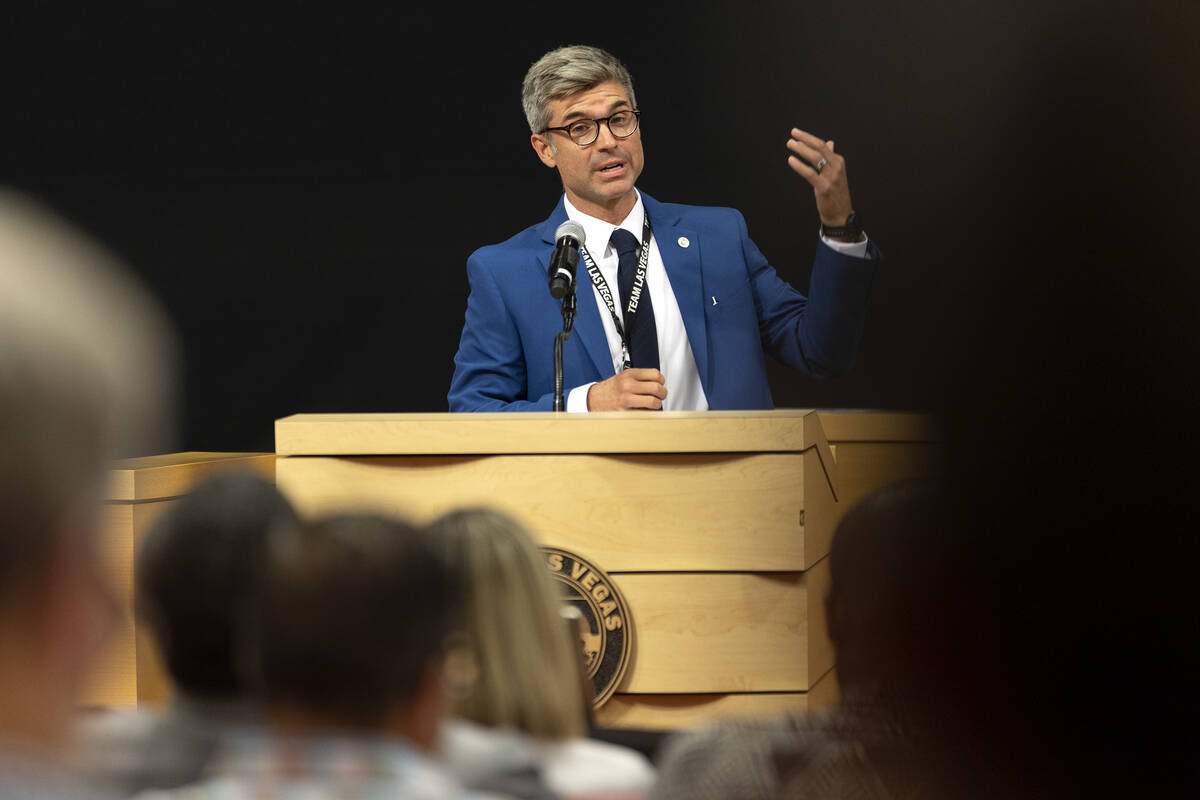‘Amsterdam of the West?’: City not budging on pot lounge regulations
A week before a possible vote on rules for upcoming cannabis consumption lounges, the city of Las Vegas had not budged on a proposed 1,000-foot separation requirement between such establishments, a regulation applicants say could hamper turning the downtown area into the “Amsterdam of the West.”
And while prospective license holders could apply for a waiver, their businesses could not afford to “gamble” with the uncertainty of leasing a location and then having their waiver denied, proponents told Seth Floyd, the city’s director of community development.
Floyd took questions Wednesday during a city-organized, hour-long virtual meeting attended by about 40 participants.
He noted that the City Council could still request amendments to the ordinance before the possible vote March 1.
If Las Vegas were to approve the regulations, licenses for the 15 prospective provisional Nevada license holders who intend to open a location within city limits could start being issued as early as June, Floyd said.
The Nevada Cannabis Compliance Board last year issued five provisional licenses to dispensaries, which will need to open the lounges attached to their facilities, and the other 10 to independent operators, which will open standalone locales.
Most of the independent licenses in Las Vegas went to so-called “social equity” applicants who were negatively affected by drug laws in place before voters legalized marijuana in 2016.
The state agency that regulates marijuana licenses has a deadline for the end of March for applicants to pick a location, and a year to open it. Floyd said the compliance board has been known to extend deadlines.
Clark County, the only other area municipality that opted into allowing the lounges, already established regulations for the up to 21 lounges it could allow.
Fees too expensive?
Another point of contention stressed by industry leaders is fees.
The city’s $10,000 one-time fees for licenses — $2,500 for social equity applicants — are too steep compared to other businesses, said Paul Murad, a real-estate professional who has been advocating for the prospective applicants. That’s on top of semiannual licensing fees, and other licensing and waiver expenses.
Murad pointed to the fee structure for wedding chapels, which he said at most pay $500 for temporary licenses.
Floyd said he would forward a proposed fee to the council.
“We’d like to see that at least cut in half,” said Tina Ulman, president of the Chamber of Cannabis.
She said that prospective independent cannabis lounge owners are just “regular folks.”
“They’re not millionaires,” she said. “They’re not investors.”
Higher licensing fees, she added, would cause applicants to have to raise more money, go deeper into debt, and “start their businesses off to fail.”
“That makes us ask investors for more money,” said Rachel Lee, the founder and CEO of Sunflower Compassionate Company and a social-equity license recipient.
The city has proven to be flexible with the regulations.
It amended the proposed ordinance to allow smoking cannabis outdoors with a waiver and recently eliminated a regulation that would have required applicants get permission from neighboring businesses to allow outdoor consumption. That requirement was replaced with a one-year review to see how things go, Floyd said.
Other distance requirements are non-negotiable, such as 300-foot separations from public spaces like parks and religious institutions, 1,000 feet from schools, and 1,500 feet from the Symphony Park District, the Las Vegas Medical District or the casino-resort district, Floyd noted.
‘New Amsterdam’
The speakers told Floyd that Las Vegas has an opportunity to set the standard on what future lounges at jurisdictions across the U.S. could look like.
They imagine a marijuana zone in the Arts District and downtown Las Vegas with lounges within walking distance of each other, creating a tourist attraction that can boost economic growth for surrounding businesses.
“People thought having gambling in the desert probably was a wild idea,” Murad said. “Not so long ago, people thought that hockey in the desert would not work, and it’s a crazy idea.”
He added: “This idea, of ‘New Amsterdam,’ and ability to have all the businesses in one central area, it simply works.”
But as the proposed regulations stand, at least the 1,000-foot separation rule is “killing our business,” said Chandler Cooks, a social-equity provisional license holder.
Contact Ricardo Torres-Cortez at rtorres@reviewjournal.com. Follow @rickytwrites on Twitter.






















